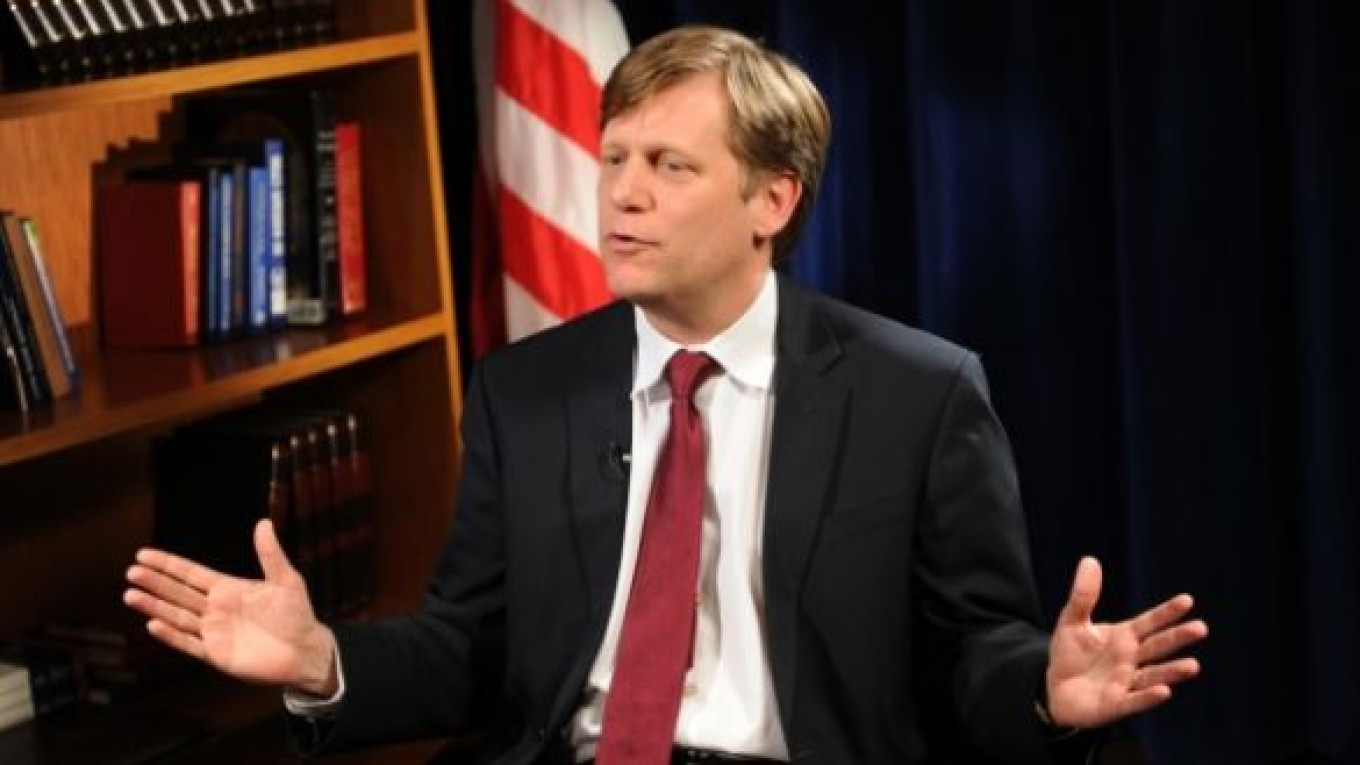The U.S. adoptive mother of a Russian boy, whose death sparked an ongoing war of words between Russia and the United States, told investigators that she discovered her son unresponsive, as Russian officials backtracked on earlier accusations of murder.
Meanwhile, Russian investigators appeared to set the stage for another adoptions scandal by opening a check into allegations that a U.S. woman concealed her same-sex relationship when she adopted a Russian child in 2007, a potential violation of Russia's ban on adoptions by homosexual couples.
Laura Shatto, whose 3-year-old adopted son Max Shatto's death was met with official outrage in Russia, told American investigators that she walked outside the family's home in Gardendale, Texas, on Jan. 21 and found the boy lying on the ground where he had been playing with his younger brother, The Associated Press reported early Thursday morning.
Russia's children's ombudsman, Pavel Astakhov, who at first accused Laura Shatto of murdering her son, known in Russia by his birth name, Maxim Kuzmin, said Thursday in an interview with Rossia-24 that the woman had left the boy alone on a playground, thereby placing him in danger and violating Texas law.
An investigation into Max Shatto's death is ongoing, no arrests have been made, and a full autopsy, which is expected to determine the cause of death, as well as the presence of an anti-psychotic drug in his blood — another Russian claim — has yet to be completed, the AP reported.
The autopsy is also aimed at revealing the origin of bruising on his lower abdomen, the agency said.
News of the boy's death — which Astakhov posted on his Twitter microblog on Monday — appeared to strain already tense relations with the United States just weeks after a blanket ban on U.S. adoption went into force.
A State Department spokeswoman on Thursday a "terrible tragedy," adding that nobody should jump to conclusions until Texas authorities had completed their investigation.
U.S. Ambassador Michael McFaul has declined an invitation to testify before the State Duma's Family, Women and Children Committee about steps that the U.S. government was taking to safeguard adopted Russian children in the United States.
"As a norm, U.S. ambassadors do not participate in hearings of foreign parliaments. Do Russian ambassadors?" McFaul said in a public Twitter message on Thursday to the Duma's International Affairs Committee chairman Alexei Pushkov, who had earlier said McFaul's refusal showed that the United States is "not ready for a serious dialogue."
U.S. parents have adopted an estimated 60,000 Russian children in the past two decades. Twenty, including Max Shatto, are known to have died. The adoptees remain Russian citizens until they reach legal adulthood.
The Russian government has intensified its response to Shatto's death, announcing that the adoptions agency that facilitated the adoption of Shatto and his younger biological brother, 2-year-old Kristopher Elvin Shatto, will be banned, RIA-Novosti reported.
Earlier, the Investigative Committee opened a murder investigation and announced that it would seek Laura Shatto's arrest in absentia and her inclusion on an international wanted list. Separately, prosecutors opened a check into Max and Kristopher's adoption, which took place last year.
Thursday also brought signs that another adoptions scandal was ready to erupt, as the Investigative Committee that it would check allegations that a U.S. woman concealed her same-sex relationship from Russian authorities when she adopted a boy in 2007.
Last week, Konstantin Dolgov, the Foreign Ministry's human rights commissioner, called the adoption the "Americans' latest amoral trick" and said the "strange little family" of lesbians, who broke up in 2008 and then fought over custody, could be causing their son "psychological trauma."
A social services official in San Diego, California, said authorities were monitoring the case and were confident that the boy didn't require outside help, Kommersant reported on Thursday.
Contact the author at j.earle@imedia.ru
Related articles:
A Message from The Moscow Times:
Dear readers,
We are facing unprecedented challenges. Russia's Prosecutor General's Office has designated The Moscow Times as an "undesirable" organization, criminalizing our work and putting our staff at risk of prosecution. This follows our earlier unjust labeling as a "foreign agent."
These actions are direct attempts to silence independent journalism in Russia. The authorities claim our work "discredits the decisions of the Russian leadership." We see things differently: we strive to provide accurate, unbiased reporting on Russia.
We, the journalists of The Moscow Times, refuse to be silenced. But to continue our work, we need your help.
Your support, no matter how small, makes a world of difference. If you can, please support us monthly starting from just $2. It's quick to set up, and every contribution makes a significant impact.
By supporting The Moscow Times, you're defending open, independent journalism in the face of repression. Thank you for standing with us.
Remind me later.


